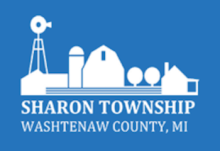Roanoke Valley Broadband Authority: Progress Made, All Indicators Favorable
As they look back over their accomplishments, the Roanoke Valley Broadband Authority (RVBA) has more than the holidays to celebrate at the close of 2018. In addition to stimulating competition in the region, the RVBA network is attracting more investment and helping local nonprofits operate more efficiently.
Dual Purpose
For Feeding America Southwest Virginia in Salem, connectivity from RVBA is critical. “Without that Internet connection reliability, it would be very difficult for us to achieve our mission,” says IT Director Eric Geist. The food bank is one of the enterprise customers that the RVBA serves in the region, providing affordable access to organizations and institutions such as nonprofits, businesses, and institutions.
By providing affordable connectivity and services focused on the needs of businesses, the RVBA network has helped drive competition in the region. According to CEO Frank Smith’s research, prices have dropped 25 - 30 percent. The change squares with the RVBA mission to enhance and promote economic development by improving connectivity services and prices in Salem, Roanoke, and the counties of Roanoke and Botetourt. They've seen results in the past three years with greater expectations ahead.
The History
Before the network, the valley was caught in a connectivity “donut hole.” The populations in Salem and Roanoke had access to some cable Internet access and were large enough to prevent the region from obtaining grants to entice providers to upgrade. In 2013, local governments decided to work together to improve connectivity and funded a feasibility study, which recommended an open access network.



